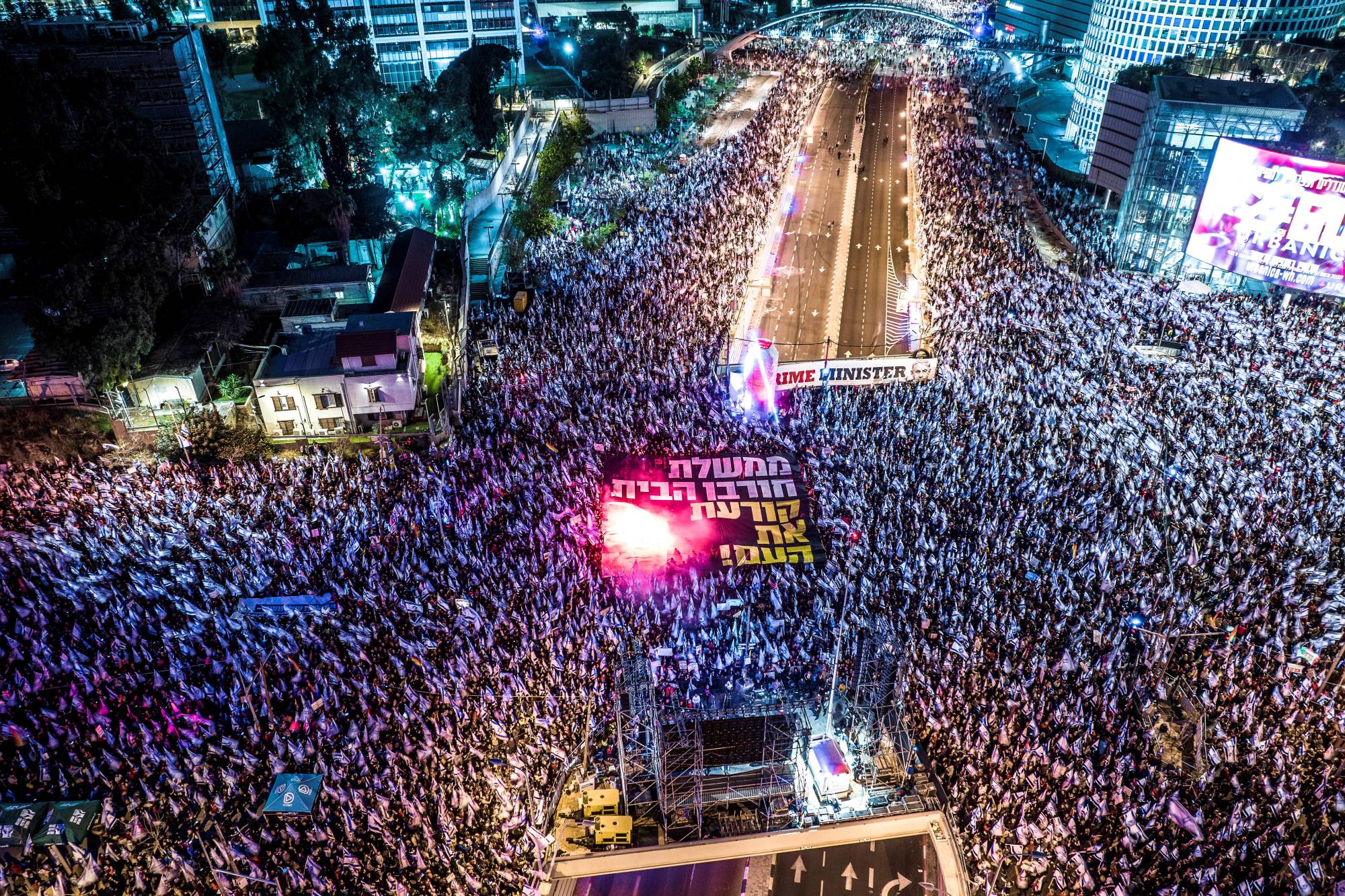
- The Israeli Prime Minister has agreed with the far-right minister, Ben Gvir, to postpone the judicial reform to May. Citizens have protested since January against a reform that the government would limit competition to the Supreme Court. On Sunday, at least 650,000 protesters took to the streets of cities and police incidents have been hard.

The protests are continuing for twelve weeks in Israel, and in recent days the streets have hardened. Defence Minister Yoav Galant was dismissed on Sunday by Prime Minister Benjamin Netanyahu. The latter stated on Saturday that the reform should stop, and the Head of Government replied that he “lost the trust of the Government” and would withdraw him from his post as minister.
Consequently, at least 650,000 people protested, particularly at Knesset, at the Israeli Parliament, expressing their disagreement with Netanyahu. There have been conflicts between police and protesters and dozens of people have been arrested, according to The Guardian. The largest protests in history are taking place in Israel and the workers call for a general strike.
Votes postponed to May
On Monday they announce that the process of judicial reform will be delayed by agreement between Israel’s Minister of National Security, Itamar Ben Gvir, and Prime Minister Netanyahu. The President of the Government points out that he is not prepared to “divide the nation” and that he wants to leave room for the debate “to avoid civil war”.
Negotiations will be suspended in April for the Jewish Day celebrations and the debate will resume in May with a deadline of July. The first vote on judicial reform was adopted in Parliament on 20 February, with 63 votes in favour (needed 61 to approve), which will have to pass two other votes with the support of the opposition.
In exchange for delaying the negotiations, Netanyahu has authorised the creation of a national guard led by National Security Minister Ben Gvir, which has aroused concern about Ben Gvir’s extreme right ideology. Israel has the most right-wing government in history since the November elections, according to The Guardian.
Powers of the Supreme Court to the Parliament
According to the Netanyahu government, the Supreme Court has excessive power, and wants to impose reform to change it. He wants to take away his powers to leave him in the hands of Knesset, that is, to give more power to the government.
The reform would allow the abolition of Supreme Court judgments by a simple majority of Parliament (with the support of 61 parliamentarians out of 120) and would give more powers to the political power to appoint the judges of the court. In addition to receiving criticism from Israeli citizens and the opposition, some international authorities have also shown their disagreement. Experts warn that the Supreme Court plays a “fundamental role” in Israel’s control and balance, which does not have a formal constitution or any other judicial chamber.
Deep political crisis
Others denounce that they want to make judicial reform for the benefit of the prime minister, because Netanyahu is being tried for corruption. As a result of this judicial route there are four years of political crisis in Israel, which question whether the state is in a position to govern. Since 2019, five elections have been held and no stable government has been established. Last November the elections won the block of far-right religious parties, led by the Likud party of Netanyahu, and since then it has been ruled by the most right-wing government in history.